HS-LS2-2
Use mathematical representations to support and revise explanations based on evidence about factors affecting biodiversity and populations in ecosystems of different scales.
-
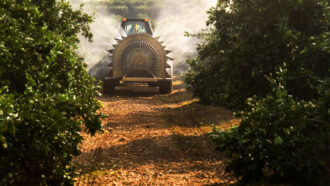 Environment
EnvironmentWidely used pesticides may threaten Earth’s ozone layer
Data show a major class of long-used “eco-friendly” copper chemicals unexpectedly react with soil, making gases harmful to Earth’s protective ozone layer.
-
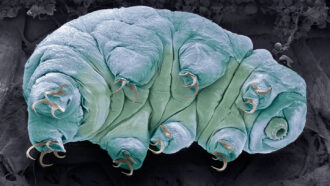 Animals
AnimalsLiving mysteries: Why teeny-weeny tardigrades are tough as nails
Tardigrades often live in cool, damp moss. Their cushy life has somehow prepared them to survive the lethal radiation of outer space.
By Douglas Fox -
 Environment
EnvironmentRecycling a climate-warming gas could make ‘greener’ farmed fish
Instead of warming the climate, methane gas can be collected to help farmers. Along the way, it may also save some fish.
-
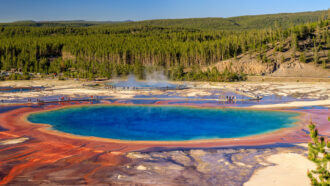 Microbes
MicrobesScientists Say: Bacteria
Bacteria get a bad rap for making people sick, but only a tiny portion of these single-celled creatures cause disease.
-
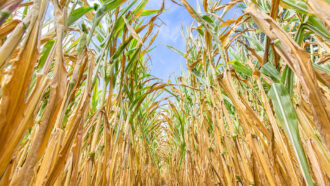 Life
LifeIn blazing heat, some plants open leaf pores — and risk death
When heat waves and droughts collide, water is precious. Some thirsty plants try to cool off by opening tiny pores — only to lose water even faster.
-
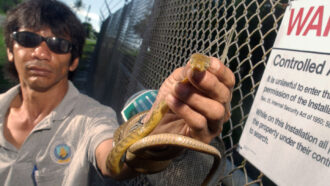 Life
LifeExplainer: What is an invasive species?
These foreign organisms hitchhike, spread widely and stir up trouble in native ecosystems.
-
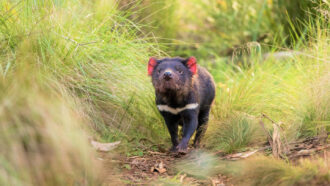 Animals
AnimalsRewilding returns lost species to strengthen ecosystems
Restoring the missing species can help undo human-caused problems by aiding forests, slowing climate change and reducing wildfires.
-
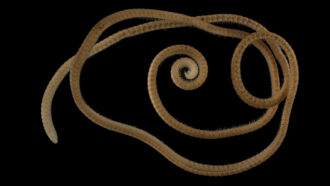 Animals
AnimalsScientists discover the first true millipede
The newfound deep-living species tunnels belowground using a whopping 1,306 legs!
-
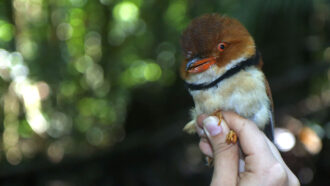 Animals
AnimalsAs the tropics warm, some birds are shrinking
Migratory birds are getting smaller as temperatures climb, studies had showed. New evidence shows dozens of tropical, nonmigratory species are, too.
-
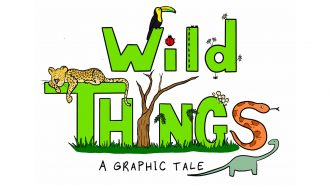 Animals
AnimalsA panda stands out at the zoo but blends in the wild
A panda may stand out among bamboo at the zoo, but in the wild, its black-and-white coloring camouflages it from predators. Learn more with this web comic.
By Sarah Zielinski and JoAnna Wendel -
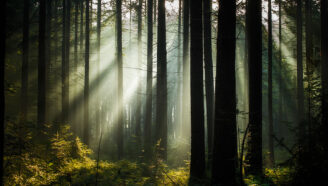 Ecosystems
EcosystemsSecret forest fungi partner with plants — and help the climate
Forest fungi are far more than mere mushrooms. They explore. They move nutrients and messages between plants. They can even help fight climate change.
-
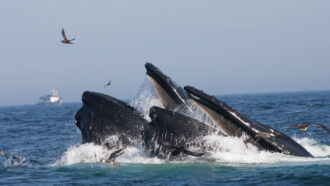 Animals
AnimalsBaleen whales eat — and poop — a lot more than we thought
The amount of food that some whales eat and then poop out suggests these animals have a powerful influence over ocean ecosystems.